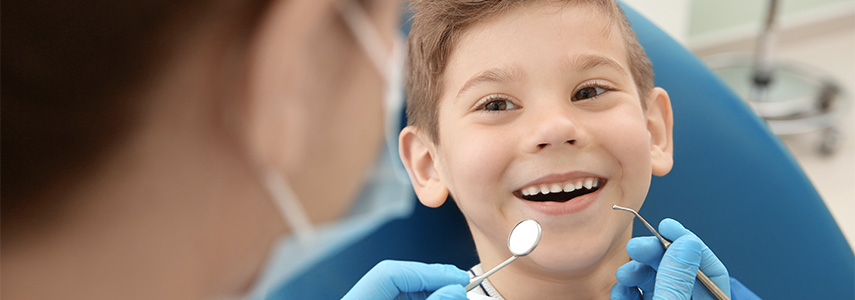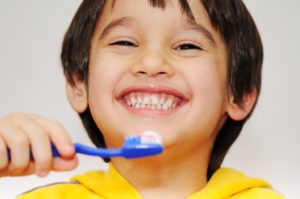The deciduous teeth of children have a wider pulp chamber, while the enamel, compared to permanent teeth, has a reduced thickness, which is why tooth decay on milk teeth takes root and spreads much faster than adults.
Milk tooth decay: cure or ignore?
Milk tooth pathologies tend to be neglected, justified by the fact that “sooner or later they have to fall”, but it is a wrong attitude, let’s try to understand why.
Caries with milk teeth, if not treated, could lead, within a short time, to a total loss of the tooth.
For a child, losing a tooth ahead of time could have consequences not only on the development of permanent dentition but also on chewing and on language.
The decayed decayed teeth must therefore necessarily be treated, as would be done in an adult patient. Added to this is obviously the need to intervene in time, because just as there would be harmful consequences for the fall of a sick tooth, in the same way there would be for an extracted tooth.
The need is in fact the same: it is important that the milk teeth remain in their place to make room for the permanent teeth and to guarantee the right positioning in the arch.
How is tooth decay treated?
Caries in adults is usually treated with devitalization. To practice the same therapy on a child, it is necessary to operate as a dentist with a proven track record because the roots of the deciduous teeth are very thin and proceeding with the devitalization is not a simple operation. Usually you can proceed with local anesthetic, but in cases of dental phobia you can opt for conscious sedation.
In children who have a particular predisposition to caries it is possible to protect the molars preventively with a transparent resin.
The importance of preventing tooth decay
The attention given to the prevention of tooth pathologies in adults should also be placed on deciduous teeth.
Children’s teeth must be checked and cared for since their eruption. To prevent tooth decay on milk teeth and other diseases it is important:
- accustom children, even very small ones, to correct oral hygiene
- consult the pediatrician for the administration of fluoride-based therapies to increase the strength of the enamel
- schedule periodic checks on the dentist from the first year of age
- avoiding sharing with children cutlery and glasses, contact with an adult’s saliva could easily transmit cariogenic bacteria in the children’s oral cavity.
In any case it is important not to neglect any symptom linked to the oral cavity: pain, change in the color of the teeth, small lesions.
Always consult a specialist and not to postpone a check-up can safeguard the health of children.


















